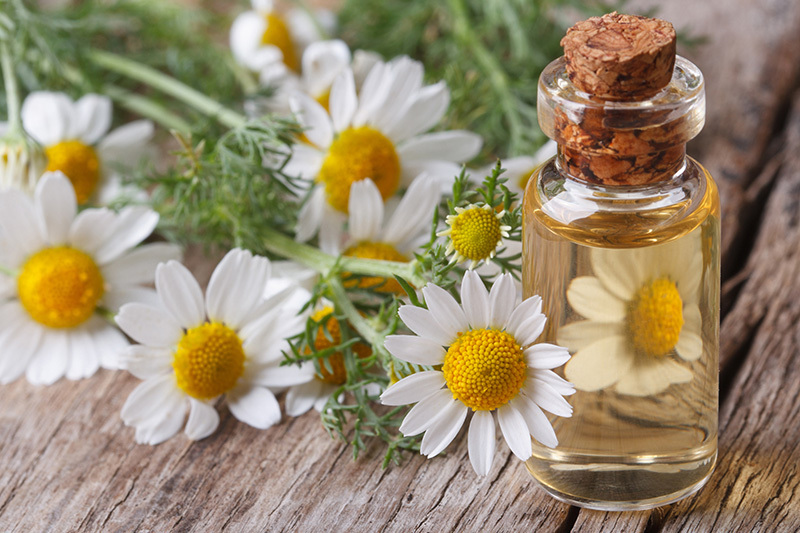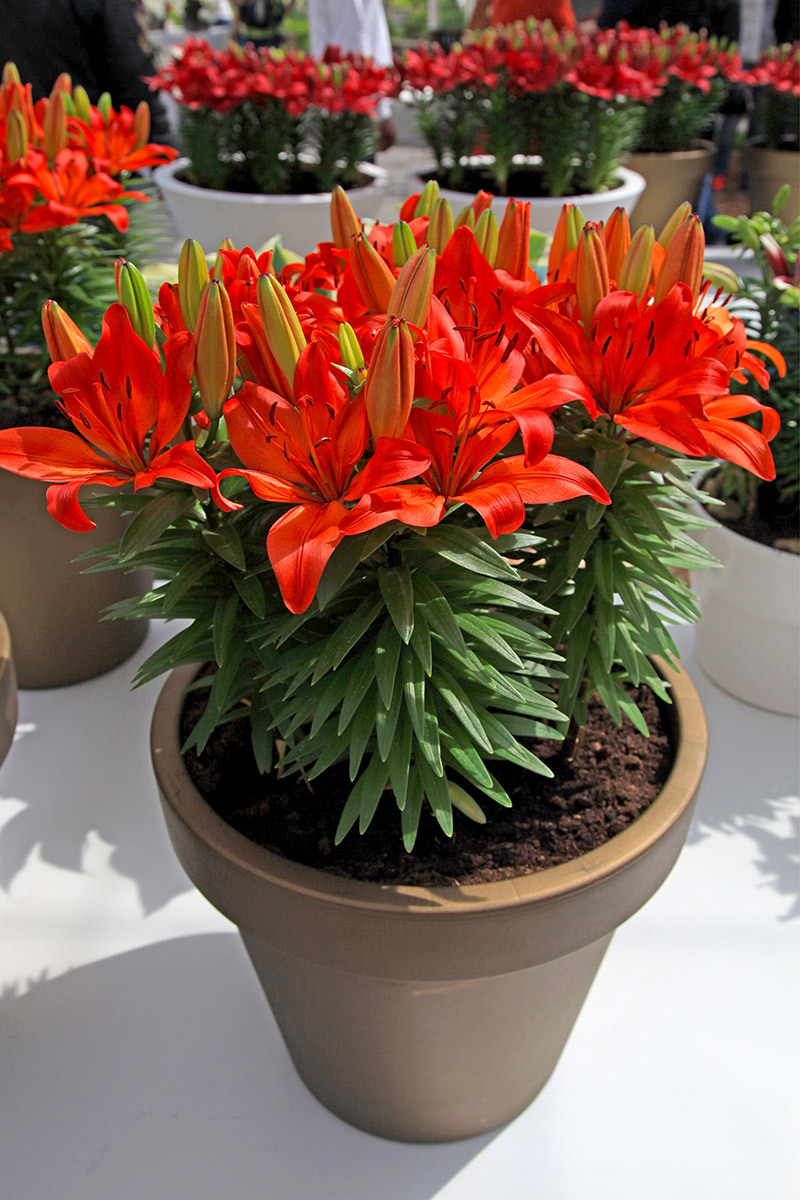Amazing Insights: What You Never Knew About Tulips
Posted on 24/08/2025
Amazing Insights: What You Never Knew About Tulips
Tulips are more than just vibrant harbingers of spring. These enchanting blooms have a captivating history, symbolic meaning, and cultural significance that stretches across continents and centuries. Whether you are a passionate gardener, flower enthusiast, or casual admirer, exploring the world of tulips reveals more than meets the eye. In this comprehensive SEO-optimized article, we delve into amazing insights about tulips--their origins, varieties, secrets, and the role they've played in societies around the globe.
The Fascinating History of Tulips
Origins: From the Wild to Window Boxes
Contrary to popular belief, tulips did not originate in the Netherlands, their most famous home today. The story of these beautiful blooms began in Central Asia, in regions stretching through present-day Kazakhstan, Iran, and the Himalayas. Wild tulips thrived naturally across these landscapes, coloring the steppes centuries before becoming a symbol of Dutch horticulture.
It was the Ottoman Turks who brought tulips into prominence. The flower became a cherished staple of Ottoman gardens and courtly art during the 16th century, regarded as a symbol of paradise on earth. Tulips even lent their name to an era: The Tulip Era (Lale Devri) in Ottoman history was a period marked by peace, prosperity, and blooming tulip gardens.
Tulip Mania: A Blooming Financial Phenomenon
Perhaps one of the most astonishing stories involving tulips is that of "Tulip Mania," which swept the Netherlands in the 17th century. This period saw tulip bulbs traded for exorbitant prices, sometimes exceeding the value of houses or gold. The market for rare and uniquely colored tulips (especially the famed 'broken' tulips with intricate streaked patterns) reached frenzied heights, making this event one of the earliest recorded economic bubbles in history.
- Tulip bulbs were used as currency, and contracts were exchanged for bulbs not yet harvested.
- The bubble burst in 1637, causing financial ruin for many speculators but cementing tulips as a national emblem of the Netherlands.

Tulip Varieties: An Incredible Spectrum
Dazzling Diversity in a Single Genus
The genus Tulipa includes about 75 wild species and over 3,000 registered varieties and cultivars. Modern tulips come in nearly every color (except a true blue), offering endless options for gardens and floral designs. Tulips' diversity is one of the key reasons for their universal appeal.
- Single Early Tulips: Known for their sturdy stems and classic oval-shaped flowers, perfect for early spring color.
- Double Late Tulips (Peony Tulips): Boast lush, double-petaled blooms reminiscent of peonies.
- Fringed Tulips: Their petals are adorned with delicate, feathered edges.
- Viridiflora Tulips: Notable for their striking green markings on the petals.
- Parrot Tulips: Famous for flamboyant, ruffled petals with multi-colored streaks.
Bicolor and Rembrandt tulips--named for the painter's era--were especially prized for their unpredictable streaks caused by a benign mosaic virus, which only added to the mystique and demand during Tulip Mania.
Unique Tulip Traits You Never Knew
- Tulips are edible! During World War II, Dutch citizens resorted to eating tulip bulbs when food was scarce. Properly prepared, they can be used as a potato substitute, although only certain parts and preparation methods are safe.
- Tulips are phototropic. Unlike many flowers, their heads will turn towards the light even after being cut--a dynamic characteristic that makes floral arrangements seem almost alive.
- Tulips continue growing after being cut. Stems can lengthen by up to an inch even after being placed in a vase!
The Symbolism and Significance of Tulips
Tulips in Art and Literature
From Ottoman miniatures to Dutch Golden Age paintings, tulips have inspired countless artists with their form and color. In poetry and literature, tulips symbolize paradise, perfect love, and fleeting beauty. The word "tulip" itself originates from the Persian word for "turban"--a nod to the flower's striking shape.
Cultural Meanings: More Than a Pretty Flower
Tulips carry meanings that vary by color and context:
- Red tulips: The declaration of true love and passion.
- Yellow tulips: Once symbolized hopeless love, but now represent cheerfulness and sunshine.
- White tulips: Purity, forgiveness, and remembrance.
- Purple tulips: Royalty, nobility, and luxury.
In Turkish tradition, the tulip is associated with Allah and spiritual perfection, making it a key motif in manuscripts and tilework.
Growing Tulips: Tips and Surprising Advice
Mastering the Basics
If you've been inspired to grow these springtime beauties, you'll be pleased to learn that tulips are surprisingly easy to cultivate. Here is a handy guide to getting the most from your bulbs:
- Plant in autumn, before the ground freezes. This allows bulbs to establish roots before winter sets in.
- Choose a sunny spot with well-draining soil. Tulips dislike waterlogged conditions, as bulbs may rot.
- Plant bulbs 6-8 inches deep, pointy side up. Grouping bulbs closely gives a dramatic, colorful effect in bloom.
- Water thoroughly after planting but avoid soggy soil during winter.
Advanced Care Tips
For continuous and spectacular blooms year after year, here are some lesser-known insights:
- After blooming, allow tulip foliage to wither naturally--leaves are essential for gathering energy for next year's flowers.
- Fertilize lightly with bone meal or a balanced bulb fertilizer in early spring.
- Some modern tulip hybrids are short-lived perennials in warmer climates. For the best perennial performance, select species tulips or "botanical tulips."
- Protect bulbs from rodents and squirrels by covering beds with mesh or mixing in sharp gravel during planting.
The Global Impact of Tulips
Tulip Festivals: Worldwide Celebrations
The tulip's legacy spans continents and cultures. Three of the world's most spectacular tulip festivals are:
- Keukenhof Gardens (Netherlands): The world's largest flower garden, showcasing over 7 million blooms.
- Canadian Tulip Festival (Ottawa, Canada): Celebrates the Dutch gift of tulips following WWII, symbolizing friendship and freedom.
- Skagit Valley Tulip Festival (USA): A vibrant display of thousands of acres of tulip fields in Washington State.
Tulips in the Economy
The Netherlands still leads the world's tulip production, exporting billions of bulbs globally. Tulip breeding and cultivation are major industries, supporting thousands of jobs and fueling global tourism.

Surprising Facts About Tulips
- Tulips can withstand freezing temperatures. Some wild species have adapted to the high, cold mountains of Central Asia and bloom after snow melts.
- Tulip petals can be used as natural food coloring.
- In the Victorian language of flowers, gifting someone a striped tulip meant you claimed their eyes were beautiful!
- Tulips have featured on national coins and stamps in countries from Iran to the Netherlands.
Modern Research: Tulips and Science
Scientists are still discovering new aspects of tulips, from their genetic blueprint--revealing mechanisms for color and disease resistance--to their use in teaching principles of plant biology and genetics. Tulip pigmentation continues to dazzle botanists and florists with its complexity and potential for new breeding breakthroughs.
Conclusion: Why Tulips Continue to Fascinate
The story of the tulip is a tale of intrigue, beauty, and natural wonder. Their journey from wild steppes to worldwide admiration is a testament to human fascination with nature's artistry. Whether as an economic force, a source of inspiration, or simply a burst of color after winter, tulips remain among the world's most beloved and enduring flowers. The next time you admire a tulip--whether in your garden, a masterpiece painting, or a festive display--remember the deep roots and amazing insights embedded in every delicate petal.
If you're captivated by these fascinating tulip facts, consider sharing the story with other flower fans, gardeners, or anyone who appreciates the surprising history and enduring magic of tulips!
Latest Posts
Ensure your flowers remain vibrant with these easy tips
Amazing Insights: What You Never Knew About Tulips
Survey which floral essence aligns with your personality
Peony flowers bloom with vivid colors, each with unique symbolism





